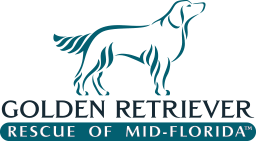Rethink, and often avoid, on-leash greetings
Acclimation versus socialization
In general, don’t allow most people to pet/interact with your dog when they are out on leash with you. Also, stay away from excited on-leash greetings with other dogs. Even if your dog is approaching in an excited and friendly way, we generally want to discourage over-excitement and arousal towards novel people and dogs. Most often, I want my dogs to see another person or dog passing and take it as a cue to ignore them and look to me for a treat. Think similar to how a service dog exists in the world – this leads to very calm and relaxed behavior in all sorts of situations! This is the approach to take when out and about on leash in the world but then depending on your dog and their individual temperament and scalability, you can also set up and facilitate play dates and off-leash interaction with novel people and puppy/dog friends.
Avoiding on-leash greetings
To make avoiding on-leash greetings easier, practice pivoting so you are in front of your dog in between them and the approaching person, simultaneously feeding your dog a treat or several to keep them close to you. It will be too easy for the person to start petting and interacting even if you don’t want them to if your dog is straining at the end of their leash to get to the person. Taking this approach will help your dog learn to check in with you when people approach and will lead to calmer, more focused behavior when out in public. You can also consider a collar, harness, or leash sleeve that says something like “DO NOT PET, IN TRAINING” (click here for examples).
Why leash greetings are not ideal
Here is a great article from “Smart Dog University” on the topic of why leash greetings with other dogs a great idea from a behavioral standpoint is generally not (the article also discusses alternatives for socializing like trail walks or playtime in a fenced area after slow introductions): On Leash Dog Greetings: Yes or No? – Smart Dog University
“Not now” and controlled greetings
Adolescence and young adulthood tend to be the stage when dogs become what many of us might call “hyper-greeters” or even “hyper-social.” It is not a coincidence that dogs also start to get labeled “reactive” around the same age. Social behaviors fall on a spectrum, with one extreme end being that of hyper sociability, and the other being of aggression/reactivity. Regardless of the underlying motivation, dogs that are coming unglued at the sight of a person or other dog are quite uncomfortable, whether they are expressing that discomfort in over-the-top appeasement gestures or barking and lunging. Ideally, we want our dogs to be relatively neutral in social situations, so keep that in mind as you raise and train puppies, adolescents, and older dogs. Many adolescent dogs do go through a stage of being overly social, and a useful skill to teach is to have a cue that indicates they are free to visit, and also a cue that means they are not.
“Not now” cue
Teaching your dog a cue that means “we are not saying hi right now” is a good idea. I like to do this by having a person approach (not too close, watch your dog’s behavior) and then by saying “not now” and then putting a high value “treat magnet” in front of the dog’s nose as I turn away. When the dog turns with me, I say “Yes!” and feed close to my leg (and shorten leash as needed to help keep the dog at my side). I practice in all manner of situations, from setups with humans that I can also cue my dog to greet, to groups of people I have no intention of letting my dog visit.
“Go say hi” cue
This is only wise to do with people your dog really enjoys! Hyper-social behavior is really discomfort; keep that in mind. So, know that these people you are cueing your dog to say hi to are safe, and known, and enjoyed. If you are not sure, the answer is don’t do it. Adding a cue to this is the same as any other behavior; when you can predict it you can add the cue and add it right before you predict the behavior to show up, then allow the behavior to occur.
VIDEO EXAMPLE: Practicing “Not Now” vs “Go Say Hi”
Courtesy of Leah Aleshire.
Courtesy of Sam Parsons.
Courtesy of Sam Parsons.
